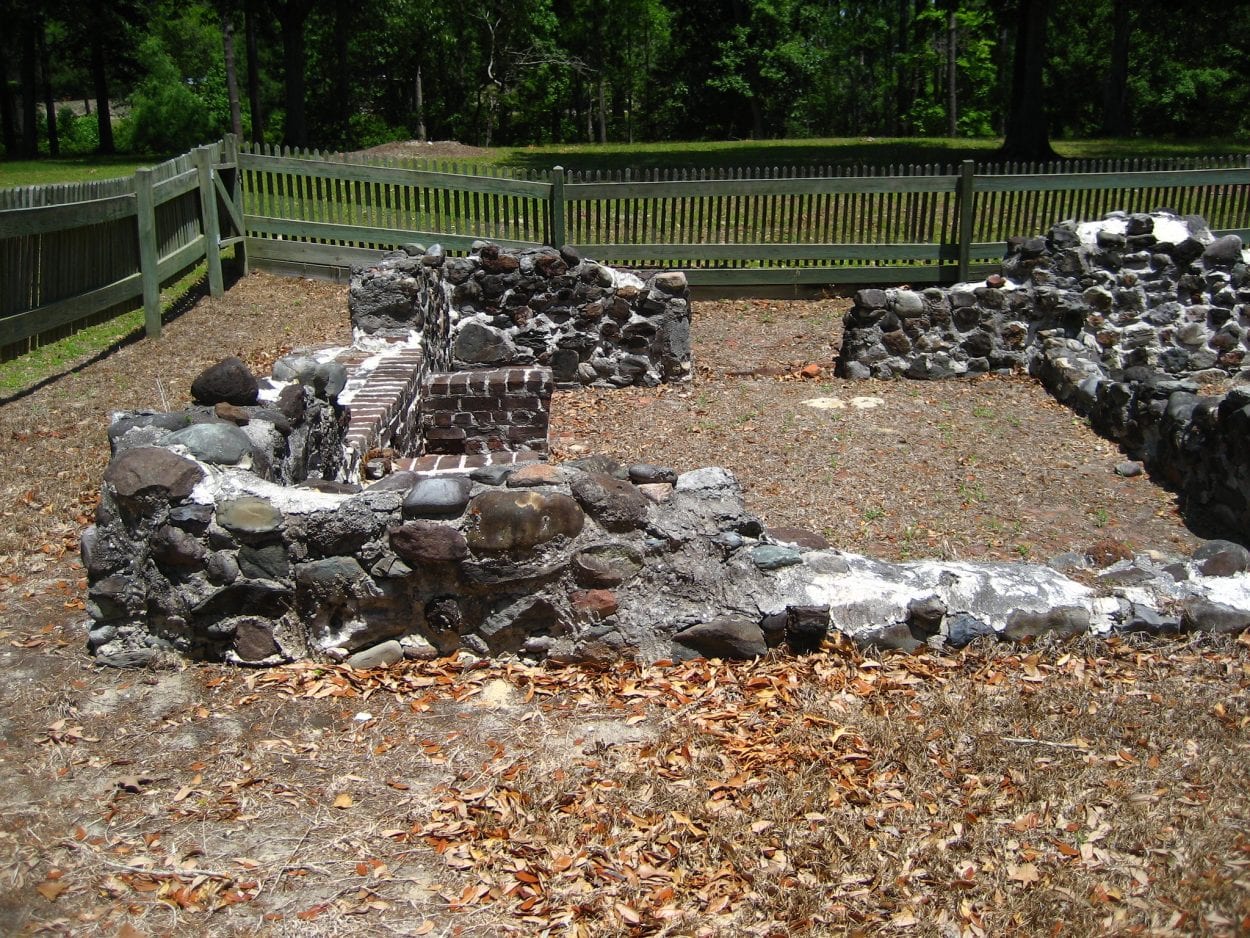Brunswick Town was a major colonial trading port in the Cape Fear region of North Carolina, that was abandoned during the on-set of the American Revolutionary War in 1775.
Prior to European settlement in the region, North Carolina was inhabited by tribes of Native Americans called the Cape Fear Indians (possibly called the Daw-hee). The Cape Fear Indians lived in coastal settlements along the Cape Fear River, but their population was decimated by smallpox spread from Spanish colonies in Florida to the Carolinas in the 16th century.
The Cape Fear Indians migrated from their villages and settled inland near Charleston in what is now known as Williamsburg County, having sold the area of Cape Fear River and adjacent lands to the British colonist William Hilton.
In 1725, 1,500 acres of land was granted to Colonel Maurice Moore by the Lord Proprietors, who founded Brunswick Town in June of 1726. The town was named after the Duchy of Brunswick-Lüneburg in north-western Germany, which was reigned over by King George I of Great Britain as the prince-elector by the Holy Roman Empire in 1708.

Brunswick covered an area of around 360 acres, organised into 24 town squares containing 336 half-acre lots for the construction of residential properties, a church, a cemetery, a courthouse, and a jail.
The town’s development was funded by the export of tar, pitch, and turpentine to Europe and the British West Indies, that saw Brunswick emerge into a major port and political seat of the New Hanover County.
In 1765, the British Parliament passed the Stamp Act, imposing a direct tax on the American colonies under they pretence that the act was to ensure the security of colonists by stationing British troops after the French and Indian Wars.
The Stamp Act and Townshend Acts provoked colonial opposition and unrest, giving rise to the slogan “No taxation without representation”, and the 1770 Boston Massacre and 1773 Boston Tea Party.
Brunswick revolted by preventing British ships from unloading the stamps, arrested Royal officials, and surrounded the home of the Governor William Tryon, resulting in an end to stamp tax collection in the Cape Fear region.
With the outbreak of the American Revolutionary War in 1775, the inhabitants of Brunswick fled due to fears of British reprisal. These fears became realised when the following year troops from the HMS Cruizer (an 8-gun Bonetta-class sloop), attacked the abandoned town setting fire to its structures, with subsequent attacks under orders from the British Generals Clinton and Cornwallis.

Following the war, Brunswick ceased to exist as a political center, and by 1783 it lay mostly in ruins. Some local merchants remained to lighten cargo from ships travelling the river shallows to the port at Wilmington, but dredging of the river channel signalled the final demise of Brunswick Town and the port was sold to plantation owner Frederick Jones Hill in 1830 for $4.25.
In 1862, Confederate States Army engineers constructed a defensive fortification called Fort Anderson in the centre of the town’s ruins to protect the port of Wilmington from the Union blockade.
The Confederates built earthworks and trenches that covered several of the town’s structures (except for St. Philip’s Church), preserving sections of Brunswick until they were excavated by archaeologists in 1958. In 1978, the Brunswick Town Historic District was added to the U.S. National Register of Historic Places.
Header Image – St. Philip’s Church – Credit : Rob Friesel – CC BY-SA 2.0





